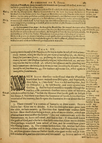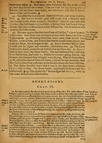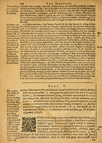Leaving Jewry because of the Pharisees, in the way to Galilee he talketh with a Samaritan woman, telling her that he will give water of everlasting life, (16) showing himself to know men’s secrets, (19) preferring the Jews’ religion before the Samaritans, but ours (the Christian Catholic religion) before them both, (25) and uttering unto her that he is Christ. (28) Which by her testimony and his preaching very many Samaritans do believe: he in the meantime foretelling his Disciples, of the harvest he will send them into. (45) The Galileans also receive him, where again he worketh his second miracle.
WHEN Jesus therefore understood that the Pharisees heard that Jesus maketh more Disciples, and baptizeth, than John, 2(howbeit [a] Jesus did not baptize, but his Disciples) 3he left Jewry, and went again into Galilee. 4And he had of necessity to pass through Samaria. 5He cometh therefore into a city of Samaria which is called Sichar; * beside the Manor that Jacob gave to Joseph his son. 6And there was there the fountain of Jacob. Jesus therefore wearied of his journey, sat so upon the fountain. It was about the sixth hour.
7There cometh [b] a woman of Samaria to draw water. Jesus saith to her: Give me to drink. 8For his Disciples were gone into the city, to buy meats. 9Therefore that Samaritan woman saith to him: How doest thou being a Jew, ask of me to drink, which am a Samaritan woman? For the Jews [c] do not communicate with the Samaritans. 10Jesus answered, and said to her: If thou didst know the gift of God, and who he is that saith unto thee, Give me to drink; thou perhaps wouldest have asked of him, and he would have given thee the [d] living water. 11The woman saith to him: Sir, neither hast thou wherein to draw, and the well is deep; whence hast thou living water? 12Art thou greater than our Father Jacob, who gave us the well, and himself drank of it, and his children, and his cattle? 13Jesus answered, and said to her: Every one that drinketh of this water, shall thirst again; but he that shall drink of the water that I will give him, shall not thirst for ever, 14but the water that I will give him, shall become in him a fountain of water springing up unto life everlasting. 15The woman saith to him: Lord give me this water, that I may not thirst, nor come hither to draw.
16Jesus saith to her: Go, call thy husband, and come hither. 17The woman answered and said: I have no husband. Jesus saith to her: Thou hast said well, that I have no husband. 18For thou hast had five husbands; and he whom thou now hast, is not thy husband. This thou hast said truly.
19The woman saith to him: Lord, I perceive that thou art a Prophet. 20 • Our fathers adored in this mountain, and you say * that at Jerusalem is the place where men must adore. 21Jesus saith to her: Woman believe me, that the hour shall come, when you shall neither in this mountain, nor in Jerusalem adore the Father. 22 * You adore that you know not: we adore that we know, for salvation is of the Jews. 23But the hour cometh, and now it is, when the true adorers shall adore the Father • in spirit and verity. For the Father also seeketh such, to adore him. 24God is a Spirit, and they that adore him, must adore in spirit and verity. 25The woman saith to him: I know that Messias cometh, (which is called Christ) therefore when he cometh, he will show us all things. 26Jesus saith to her: I am he, that speak with thee.
27And incontinent his Disciples came; and they marvelled that he talked with a woman. No man for all that said: What seekest thou, or why talkest thou with her?
28The woman therefore left her water-pot: and she went into the city, and saith to those men: 29Come, and see a man that hath told me all things whatsoever I have done. Is not he Christ? 30They went forth therefore out of the city, and came to him.
31In the meantime the Disciples desired him, saying: Rabbi eat. 32But he said to them: I have meat to eat which you know not. 33The Disciples therefore said one to another: Hath any man brought him for to eat? 34Jesus saith to them: My meat is to do the will of him that sent me, to perfect his work. 35Do not you say that yet there are four months, and harvest cometh? Behold I say to you, lift up your eyes, and see the Countries, that they are white already to harvest. 36And he that reapeth, receiveth hire, and gathereth fruit unto life everlasting; that both he that soweth, and he that reapeth, may rejoice together. 37For in this is the saying true; that it is one man that soweth, and it is another that reapeth. 38I have sent you to reap that which you laboured not; others have laboured, and you have entered into their labours.
39And of that city many believed in him of the Samaritans, for the word of the [e] woman giving testimony: that he told me all things whatsoever I have done. 40Therefore when the Samaritans were come to him, they desired him that he would tarry there. And he tarried there two days. 41And many more believed for his own word. 42And they said to the woman: That now not for thy saying do we believe; for ourselves have heard, and do know that this is the Saviour of the world indeed.
43And after the two days he departed thence; and went into Galilee. 44For Jesus himself gave testimony that a Prophet hath not honour in his own country. 45Therefore * when he was come into Galilee, the Galilaeans received him, whereas they had seen all things that he had done at Jerusalem in the festival day; for themselves also came to the festival day.
46He came again therefore into Cana of Galilee, * where he made water wine. And there was a certain Lord whose son was sick at Capharnaum. 47He having heard that Jesus came from Jewry into Galilee, went to him, and desired him that he would come down and heal his son, for he began to die. 48Jesus therefore said to him: Unless you see signs and wonders, you believe not. 49The Lord saith to him: Lord, come down before that my son die. 50Jesus saith to him: Go, thy son liveth. The man believed the word that Jesus saith to him, and went. 51And as he was now going down, his servants met him; and they brought word, saying: That his son lived. 52He asked therefore of them the hour, wherein he was amended. And they said to him: That yesterday at the seventh hour the fever left him. 53The father therefore knew that it was in the same hour wherein Jesus said to him: Thy son liveth, and himself believed and his whole house. 54This again the * second sign did Jesus, when he was come from Jewry into Galilee.
Footnotes
- ↑ He did not baptize ordinarily: yet that he baptized his Apostles, St. Aug. thinketh it very probable, ep. 108.
- ↑ This woman is a figure of the Church, not yet justified, but now to be justified. Aug. tract. 15. in Joan.
- ↑ There were many other causes why the faithful Jews could not abide the Samaritans, but their precise abstaining from their company and conversation, was their Schismatical Temple and Service in Mount Garizim.
- ↑ He speaketh of his baptizing in the Holy Ghost. see Joh. ch. 7, 39.
- ↑ This woman mystically being the Church, it is here signified that they which at the first believe because the Church teacheth so, afterward be much confirmed, finding it in the Scripture also, and by other instructions.
ANNOTATIONS. CHAP. IV.
↑ 20. Our Fathers adored.) By adoration is meant doing of Sacrifice. For other offices of Religion might be done in any place. The Samaritans to defend their adoring in Garizim, pretended their worshipping there to be more ancient than the Jews in Hierusalem, referring it to Jacob: whereas indeed that Patriarch adoring there before the Temple was appointed, or the Law given, made nothing for their Schism: which was begun by Manasses a fugitive Priest, only to hold his unlawful wife thereby, and to obtain Superiority in Schism: which he could not do in the unity of his brethren; long after the Temple of Jerusalem from which the revolt was made. Therefore Christ giveth sentence for the Jews and the Temple of Hierusalem, affirming that they had a good ground thereof, but the Samaritans none at all.
Josephus also recordeth how the Samaritans demanded of Alexander the Great, the like privileges and immunities as he had granted to the high Priest and Temple of Hierusalem, pretending their Temple to be as great and as worthy, and themselves to be Jews as the other, and to worship the same God. But their Schismatical hypocrisy was easily spied and dismissed with nothing. Another time the Jews and Samaritans (as the same writer testifieth) made a great stir in Alexandria about the truth and antiquity of the Schismatical Temple and service in Garizim, and the other true Temple of Salomon: insomuch that the matter was put to arbitrement by Ptolomaeus the King’s commandment, only to try whether of the two was first. And the Schismatics (as their custom is) per saltum can make their Church or service as old as they list, referring it to the Patriarchs, as our Schismatics do now to Christ and the Apostles. But when the trial was made, only they of Jerusalem did invincibly prove by continual succession of their Priests, and by the just note of the time when the Schismatics went out from them, that theirs was the lawful, and the other the false Temple and false adoration. And so it was judged, and the Samaritans put to silence. Afterward the said Schismatics (which is lightly the end of all Schisms) revolted quite from the Jews’ religion, and dedicated their temple in Garizim to Jupiter Olympius, as Calvin’s supper and his bread and wine is like at length to come to the sacrifice of Ceres and Bacchus.
↑ 23. In Spirit and verity.) Our Saviour foretelleth her that the end and ceasing of their Sacrifice and adoration in both the Temples should shortly be, and even then was begun to be fulfilled: instructing her in three things concerning that point. First, that the true Sacrifice should be tied no more to that one place or Nation, but that true adoration should be throughout all Nations according to the Prophecy of Malachy. Secondly, that the gross and carnal adoration by the flesh and blood of beasts and other external terrene creatures not having in them grace, spirit and life, should be taken away, and another Sacrifice succeed, which should be in itself invisible, celestial, divine and full of life, Spirit and grace. And thirdly, that this adoration and Sacrifice should be the verity itself whereof all the former Sacrifices and Hosts were but shadows and figures. And he calleth that here spirit and truth, which in the first Chapter is called grace and truth. All which is no more but a prophecy and description of the Sacrifice of the faithful Gentiles in the body and blood of Christ: not that it is not by external means given to us (for otherwise we being men consisting of flesh and blood could not be capable thereof) but that it is spirit and life in itself, being the flesh of the WORD of God. And if a man enlarge the word of Adoration, (which here as is said, signifieth properly the worship of God by Sacrifice) to all the Sacraments of the new Law, they all likewise be spirit and grace, the Holy Ghost working invisibly and internally upon our souls by every one of them. Whereupon our Baptism, is water and the Holy Ghost: our Penance, the word of absolution and the Holy Ghost: our Confirmation, oil and the Holy Ghost by imposition of hands: finally, all the adoration of the Catholic Church, is properly spiritual, though certain external creatures for our natures, state and necessity, be joined thereunto. Take heed therefore thou gather not of Christ’s words, that Christian men should have no use of external office towards God: for that would take away all Sacrifice, Sacraments, Prayers, Churches and society of men in his Service.
Margin Notes
- 5–42. The Ghospel upon Friday in the 3 week in Lent.
- 46–53. The Ghospel upon the 20 Sunday after Pentecost.
- annot. 20. The Schismatical Temple contendeth against the true Temple.
- annot. 20. The true Temple prevaileth.
- annot. 20. The true Temple is proved by continual succession.
- annot. 23. Christian adoration throughout all Nations in every place, in spirit and verity: that is in the Sacraments and Service of the new law, full of spirit and grace: in the verity of things before prefigured, specially the true Sacrifice of Christ’s body and blood.
Margin References
- 5. Gen. 48, 22.
- 20. Deu. 12, 6. Psal. 121, 13.
- 22. 4. Reg. 17, 20. 18, 36.
- 45. Mat. 4, 12, Mar. 1, 14. Luc. 4, 14.
- 46. Joh. 2, 9.
- 54. Joh. 2, 11.
- annot. 23. Mal. 11.
- annot. 23. Jo 1, 17.




